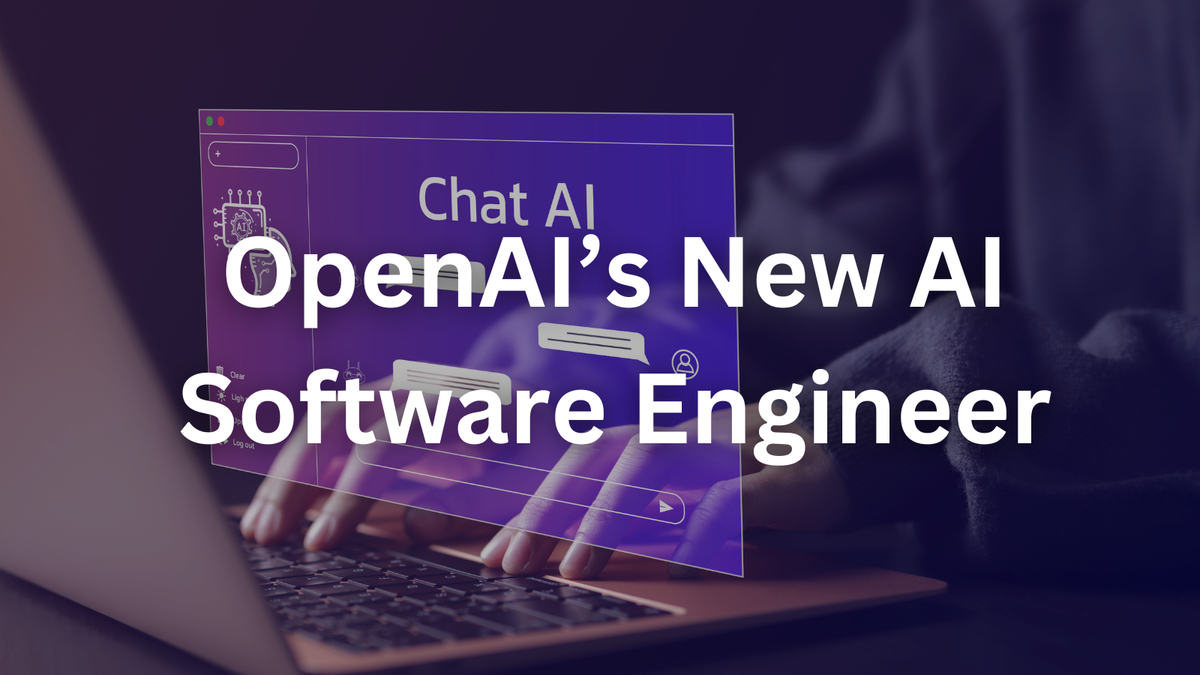Is OpenAI’s New AI Software Engineer the End of Human Coders?

Software development is drowning in grunt work—and OpenAI just threw it a lifeline. The company’s latest AI agent promises to automate the tedious tasks developers hate: testing code, debugging errors, and optimizing performance. But could this "self-testing software engineer" also threaten jobs? Let’s dive in.
🤖 The Grind of Software Development: Why Humans Can’t Keep Up
- 70% of developers’ time is spent testing, debugging, and maintaining code—tasks often skipped due to burnout.
- 1 million+ developer shortage projected by 2025, with demand for software outpacing human workforce growth.
- Costly errors: A single bug in critical systems (e.g., healthcare or finance) can cost millions and risk lives.
The deeper issue? Humans are wired to prioritize creative tasks over repetitive ones. OpenAI’s agent exploits this gap by handling the work humans won’t—or can’t—do consistently.
✅ OpenAI’s Solution: Meet Your New AI Coworker
OpenAI’s AI agent acts as an autonomous software engineer, leveraging large language models (LLMs) and automated testing tools to:
- ✅ Self-test code in real-time, flagging errors before deployment.
- ✅ Debug autonomously, reducing resolution time from hours to minutes.
- ✅ Optimize legacy systems, a task developers often avoid due to complexity.
The breakthrough? It mimics human reasoning but operates at machine speed. Early tests suggest it could cut development cycles by 40%, freeing engineers for innovation.
⚠️ The Hurdles: Why This Isn’t a Silver Bullet
- 🚧 Ethical concerns: Who’s liable if the AI introduces a critical bug?
- ⚠️ Accuracy gaps: LLMs still hallucinate code solutions, requiring human oversight.
- 🚧 Integration chaos: Old systems might reject AI-generated patches, creating compatibility nightmares.
Expert warning: "Over-reliance on AI could erode foundational coding skills," says a senior engineer quoted in the article. Meanwhile, regulators are eyeing accountability frameworks.
🚀 Final Thoughts: Augmentation, Not Replacement
OpenAI’s agent shines brightest as a collaborator—not a replacement. Success depends on:
- 📈 Transparency: Clear audit trails for AI-generated code changes.
- 🤝 Hybrid workflows: Humans overseeing high-stakes decisions.
- ⚖️ Regulatory guardrails to prevent misuse in sensitive industries.
The future isn’t human vs. AI—it’s humans empowered by AI. But will companies see it that way? What do you think?
Let us know on X (Former Twitter)
Sources: Livemint. OpenAI's Next AI Agent Is a Self-Testing Software Engineer That Does What Humans Won't: ChatGPT, 2024. https://www.livemint.com/technology/tech-news/openais-next-ai-agent-is-a-self-testing-software-engineer-that-does-what-humans-won-t-chatgpt-11744506780340.html










